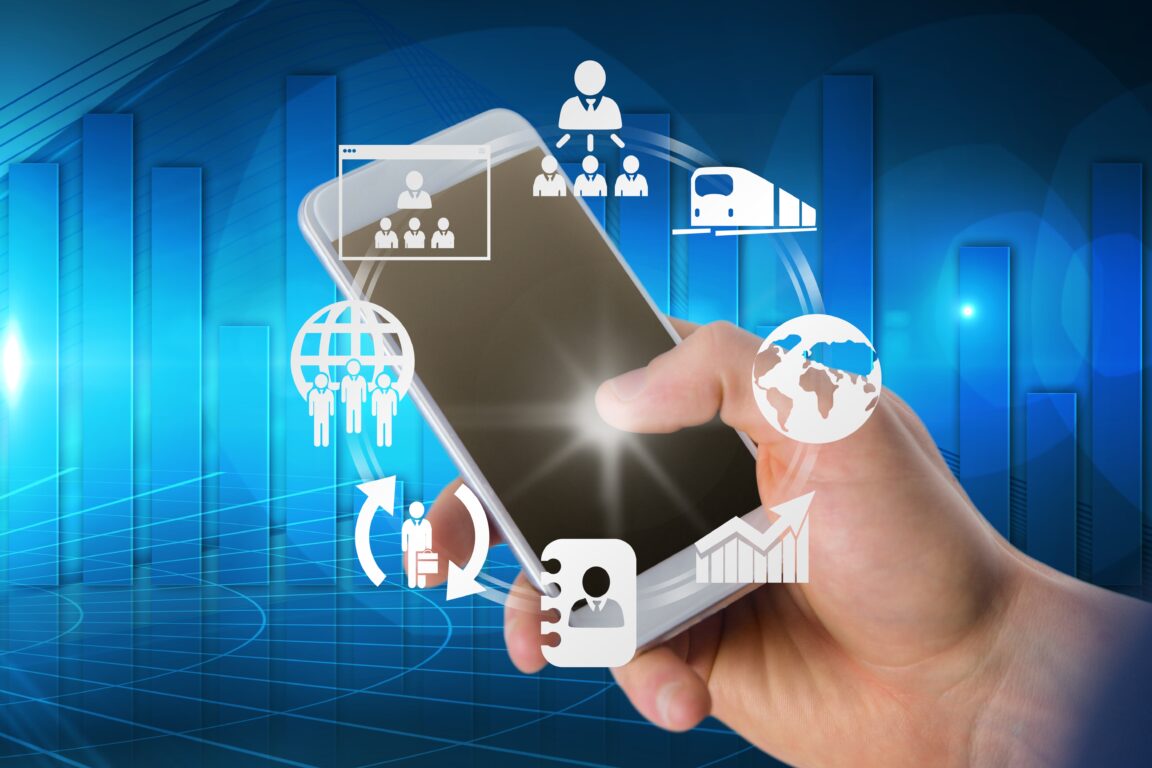In the blink of an eye, the world of technology has been transformed by the mobile app revolution. From the early days of basic utilities and simple games, mobile apps have evolved into powerful tools that have reshaped the way we live, work, and interact with the world around us. In this blog post, we’ll explore the profound impact of the mobile app revolution and how it is shaping the future of technology.
The Birth of the Mobile App Era
The mobile app revolution didn’t happen overnight. It began with the launch of Apple’s App Store in July 2008, which allowed developers to create and distribute applications for the iPhone. This marked the beginning of a new era in technology, one where software and services were increasingly delivered through mobile apps.
At first, mobile apps were limited in scope and functionality. They were primarily used for entertainment and simple tasks, such as playing games or checking the weather. However, as smartphones became more powerful and capable, developers began to push the boundaries of what was possible.
The Proliferation of Mobile Apps
Fast forward to today, and the number of mobile apps available is staggering. Both the Apple App Store and Google Play Store boast millions of apps covering a wide range of categories, from productivity and communication to health and fitness. These apps have become an integral part of our daily lives, helping us navigate our busy schedules, stay connected with loved ones, and access information at our fingertips.
The Impact on Business and Industry
The mobile app revolution has had a profound impact on businesses and industries across the globe. For businesses, mobile apps have opened up new avenues for reaching customers and generating revenue. Retailers, for example, have embraced mobile apps to provide a seamless shopping experience, with features like mobile payments, product recommendations, and personalized offers.
In the travel industry, mobile apps have transformed the way we plan and book trips. From flight and hotel reservations to navigation and itinerary management, travelers now rely on mobile apps to make their journeys smoother and more enjoyable.
Even traditionally conservative sectors, such as healthcare and finance, have seen significant changes thanks to mobile apps. Telemedicine apps allow patients to consult with doctors remotely, while mobile banking apps enable users to manage their finances with ease.
The Workforce Goes Mobile
The workplace has also been revolutionized by mobile apps. The concept of remote work has gained traction, with employees using mobile apps to collaborate, communicate, and access critical business information from anywhere in the world. Tools like Slack, Microsoft Teams, and Zoom have become essential for remote teams to stay connected and productive.
Furthermore, mobile apps have given rise to the gig economy, where individuals can use apps like Uber, Lyft, and TaskRabbit to find flexible work opportunities. This shift in the workforce has created new employment models and income streams, all made possible by mobile technology.
Enhancing Education and Learning
Education is another field that has benefited from the mobile app revolution. Educational apps have made learning more accessible and engaging, allowing students of all ages to access a wealth of information and resources. Whether it’s language learning apps like Duolingo or educational games that teach math and science concepts, mobile apps are changing the way we acquire knowledge.
Beyond traditional education, mobile apps have also facilitated lifelong learning and skill development. Platforms like Coursera, Udemy, and Khan Academy offer a wide range of courses and tutorials, empowering individuals to acquire new skills and advance their careers.
The IoT Revolution: Transforming Our World with Smart Devices
The mobile app revolution is closely tied to the Internet of Things (IoT), a concept that envisions a world where everyday objects are interconnected and communicate with each other through the internet. Mobile apps play a central role in controlling and monitoring IoT devices, such as smart thermostats, home security systems, and wearable fitness trackers.
Through mobile apps, users can remotely adjust their thermostat settings, check security camera feeds, or track their daily steps and workouts. This level of connectivity and control has brought unprecedented convenience to our lives and paved the way for the smart homes and cities of the future.
Personalization and AI
Mobile apps have become increasingly personalized and intelligent, thanks to advancements in artificial intelligence (AI) and machine learning. Apps like Netflix use AI algorithms to recommend movies and TV shows based on your viewing history, while music streaming services like Spotify create personalized playlists tailored to your music preferences.
In addition to personalization, AI-powered mobile apps are making strides in healthcare, with diagnostic and monitoring tools that can detect health conditions and provide insights to users. Virtual assistants like Siri, Google Assistant, and Alexa are also becoming smarter and more capable, helping users with tasks and answering questions using natural language processing.
Challenges and Concerns
While the mobile app revolution has brought about incredible advancements and opportunities, it has not been without its challenges and concerns. As mobile apps collect vast amounts of user data, there is a growing need to ensure that this data is handled responsibly and protected from unauthorized access.
App addiction is another concern. With the constant barrage of notifications and the addictive nature of some apps, users can find themselves spending excessive amounts of time on their devices, which can have negative effects on mental health and productivity.
Additionally, the mobile app market has become highly competitive, making it challenging for new developers to break through and gain visibility. Monetization strategies, such as in-app advertising and freemium models, have also sparked debates about user experience and fairness.
The Future of the Mobile App Revolution
As we look to the future, it’s clear that the mobile app revolution is far from over. Emerging technologies like augmented reality (AR) and virtual reality (VR) are poised to bring entirely new experiences to mobile apps, from immersive gaming to interactive learning.







Comments
0 comments